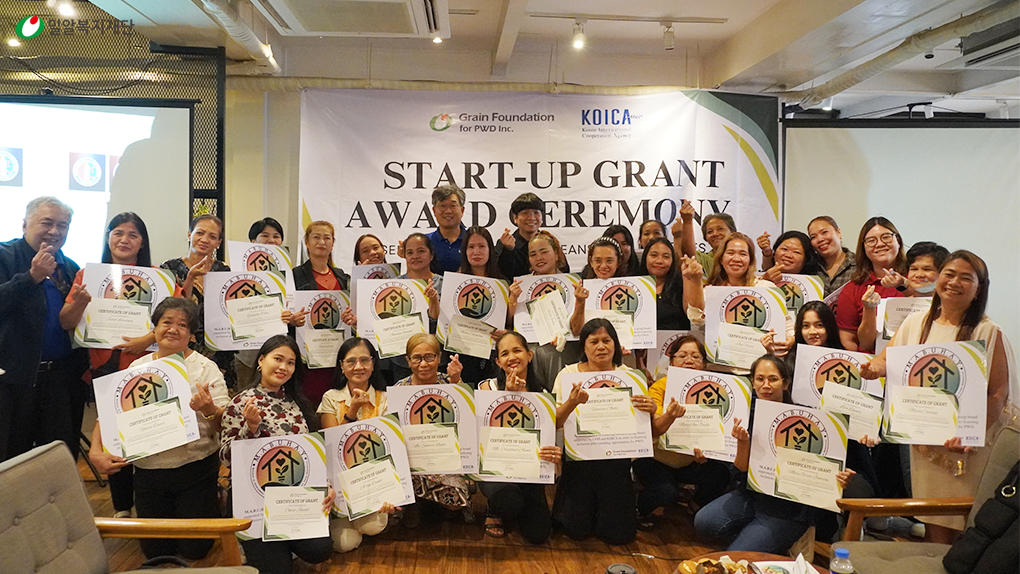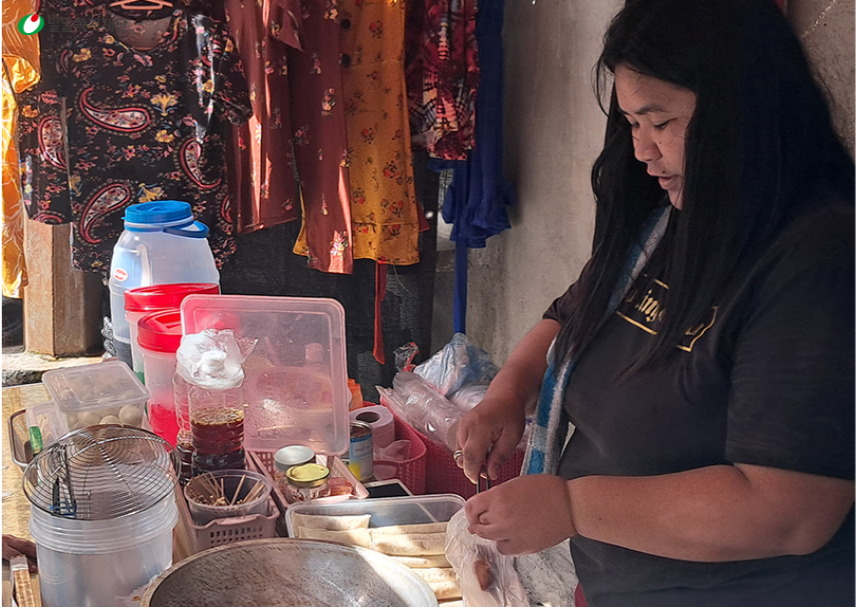|
Manila Branch in the Philippines Provides Startup Funds to Families with Disabilities 2025.02.11 |
|---|
|
On September 18th, the Philippine Manila
Branch (GFPI, Grain Foundation for PWD Inc.) held a ceremony to provide startup
funds to 29 households of people with disabilities. These 29 participants,
selected in May, completed a three-month entrepreneurship training program.
Based on a support fund of approximately 60,000 pesos per person (around 1,030 USD),
they have begun their entrepreneurial activities. Let’s take a moment to look back at the
journey they have traveled to start their small but valuable businesses.
Second Group of Participants who
received start-up funds Manila Branch in Philippines to provide start-up funds to 29 families with disabilities After going through a rigorous screening process in three rounds, the 29 recipients of the second phase, with a competitive rate of 2.9:1, are either people with disabilities or mothers of family members with disabilities. They are also a vulnerable group who have struggled to make a living due to unstable sources of income and low earnings. Many of them lost their jobs during the COVID-19 pandemic, while others were unable to continue working as they had to care for family members with disabilities. The Philippine Manila Branch, in collaboration with the Korea International Cooperation Agency (KOICA), supports entrepreneurial activities through the “Livelihood Strategy Diversification Support Project for Vulnerable Families with Disabilities in Urban area in the Philippines,” aiming to help these households achieve economic independence. 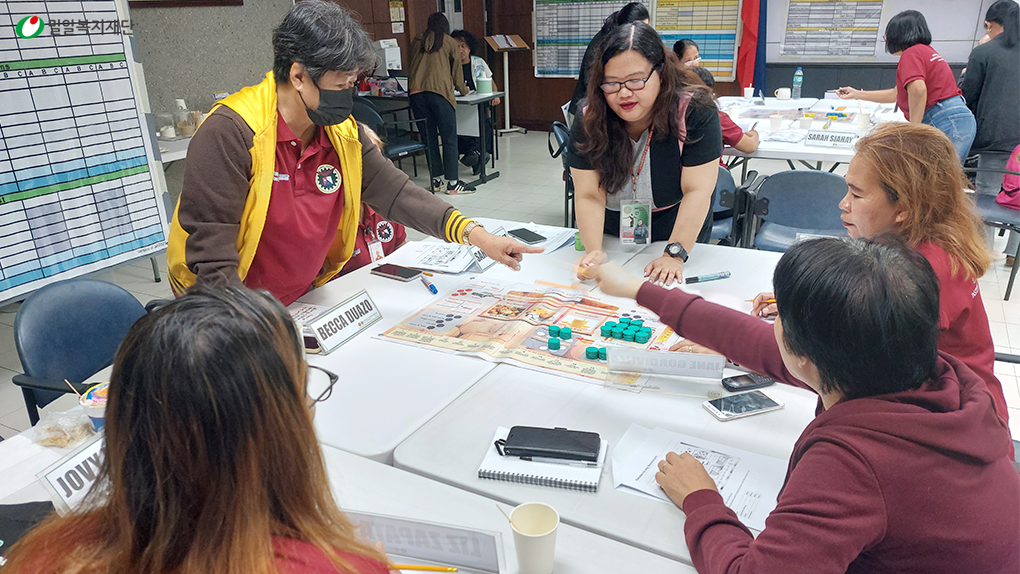 Business training for start-ups Before providing the startup funds, the Manila Branch collaborated with UP ISSI (University of the Philippines Institute for Small-Scale Industries), an affiliated institution of the University of the Philippines, to offer business education programs. These programs included basic business training, financial management, and marketing strategies, aimed at equipping the recipients with the necessary skills to operate a business. In addition, they provided technical training relevant to the entrepreneurship courses, produced sample products for internal review, and conducted study tours. Through these activities, they explored ways to reduce costs and improve quality to enhance competitiveness. Since these mothers had no prior experience running a business or receiving business education, following the intensive training program, creating their business plans, and presenting them in front of experts were all challenging tasks. Similarly, incorporating feedback and refining their plans was also not easy. However, thinking of their families, who are their greatest source of motivation, they were able to stay strong and never give up until the end. 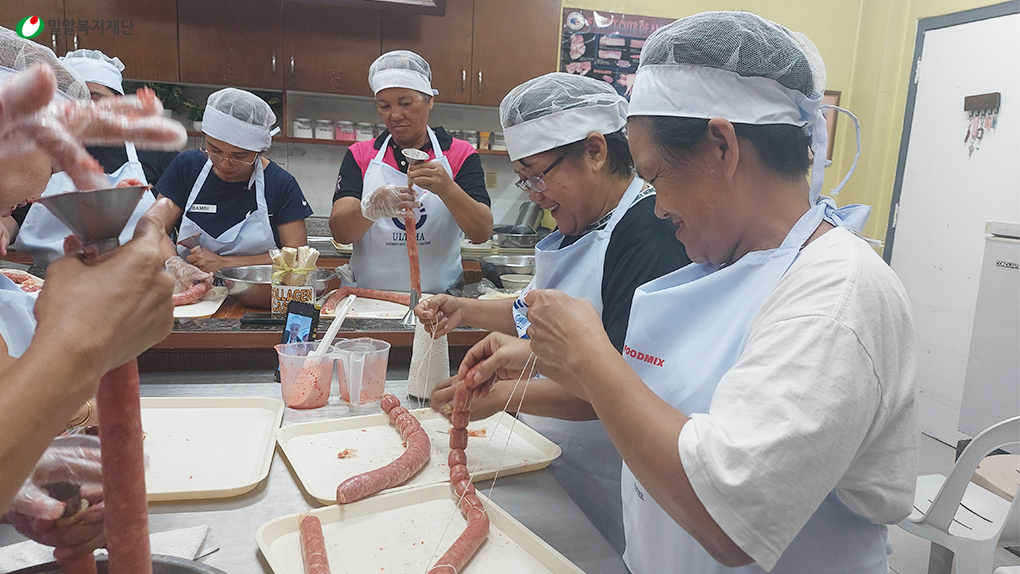 Technology training for start-ups Dreaming of the Future in a Small Place After receiving startup funding, the mothers' lives became even busier. They purchased supplies according to their business plans and arranged a space in a corner of their homes to make and sell their products. Most of these were small-scale home-based businesses targeting neighbors and acquaintances, but the power of this small business was significant. Sarah Siahay (55), who opened a small kiosk in front of her house to sell breakfast to neighbors, had relied on the irregular income of her husband, a construction worker, after losing her job due to COVID-19. However, now that she had a small but steady income, Sarah was happy because she no longer needed to borrow money to buy necessities for her children. Joanne Gorobat (32), who had congenital hand deformities and could not find a proper job, was also in a difficult situation after her husband was injured at work. However, thanks to being selected for the livelihood diversification support project, she was able to sustain her living.
Amalia Baldado (51), who struggles with limited use of her right side due to a stroke and lives with medication, shared that participating in the project has given her a hope for life, as she now has something to contribute to her family, unlike before when she was dependent on them. Not only Amalia, but all the participants who started their businesses say that being part of this project was a great blessing and opportunity. As a family with disabilities, they struggled day by day to survive in poverty and numerous discriminations. However, with support from the Miral Welfare Foundation, they now dream of a hopeful future - not just a small corner of their home but becoming proud owners of a proper store. 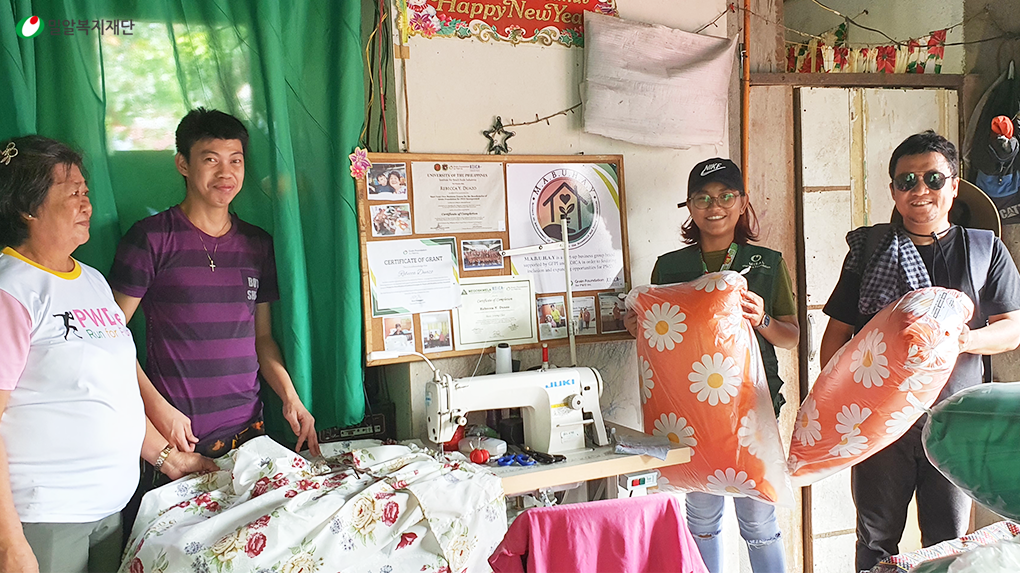 Rebecca makes and sells pillowcases and curtains Through startup support, so that more people can dream of a brighter future... The Miral Welfare Foundation will continue to be a good partner, helping make the future they dream of a reality. Despite the challenges, don’t you look forward to the changes that these individuals, who have not lost hope and are shaping their future through entrepreneurship, will bring? Please continue to watch over them with ongoing interest and support! |
